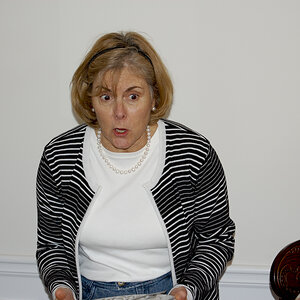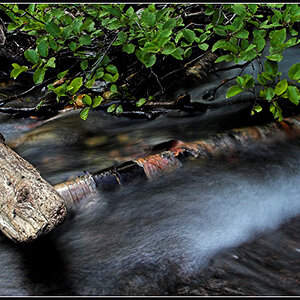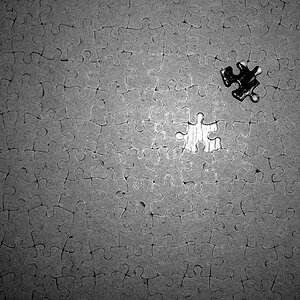DougGrigg
TPF Noob!
- Joined
- Oct 26, 2013
- Messages
- 297
- Reaction score
- 66
- Location
- London & Devon (England)
- Website
- www.douggrigg.com
- Can others edit my Photos
- Photos NOT OK to edit
I know many of you couldn't dream of combining words with photography, but in academia it is a definitive requirement and I really do need some help!
Primarily on research ideas, who to quote and just general things to look at.
My dissertation in lay-mans is, human facial expressions within photography.
My actual written heading / question is
"Can you Lie to me?"
An investigation into the veracity of photography, originating with the belief that the human guise involuntarily expresses, and reveals underlying character of which is underpinned by emotion, whilst also exploring the use of personality along with warranted facial expressions within 21st century portrait photography, Adopting the research of Dr Paul Ekman as a tool for the translation of portrait imagery.
I'm asking : does anyone know of any relevant photographers who focus on human facial expressions with a strong connection to academia or educational writing?
Or any neurologists, human behavioral psychologists who write about the correlation between emotion & expressions leaning against photography?
Currently looked at:
Dr paul ekman
Bettina Von Zwehl
Charles Darwin
Duchenne du Boulogn
Rankin
Marco Grob
Terry Richardson
Oscar wilde
Haggard & isaacs
Freitas-Magalhaes
-------------------------
Or any artists / photographers that have a narrative or connection to the "Truth" of photography!
I wouldn't ask here if I didn't think a few of you guys & girls know more research I should look at, after all, knowledge is power and a foundation for a clearer clarity within photography!
Primarily on research ideas, who to quote and just general things to look at.
My dissertation in lay-mans is, human facial expressions within photography.
My actual written heading / question is
"Can you Lie to me?"
An investigation into the veracity of photography, originating with the belief that the human guise involuntarily expresses, and reveals underlying character of which is underpinned by emotion, whilst also exploring the use of personality along with warranted facial expressions within 21st century portrait photography, Adopting the research of Dr Paul Ekman as a tool for the translation of portrait imagery.
I'm asking : does anyone know of any relevant photographers who focus on human facial expressions with a strong connection to academia or educational writing?
Or any neurologists, human behavioral psychologists who write about the correlation between emotion & expressions leaning against photography?
Currently looked at:
Dr paul ekman
Bettina Von Zwehl
Charles Darwin
Duchenne du Boulogn
Rankin
Marco Grob
Terry Richardson
Oscar wilde
Haggard & isaacs
Freitas-Magalhaes
-------------------------
Or any artists / photographers that have a narrative or connection to the "Truth" of photography!
I wouldn't ask here if I didn't think a few of you guys & girls know more research I should look at, after all, knowledge is power and a foundation for a clearer clarity within photography!



![[No title]](/data/xfmg/thumbnail/39/39447-6e7679723d775935851f055bae9712ba.jpg?1619739036)






![[No title]](/data/xfmg/thumbnail/39/39181-9016b4d45a06d288c1a2b92565ba7837.jpg?1619738902)


